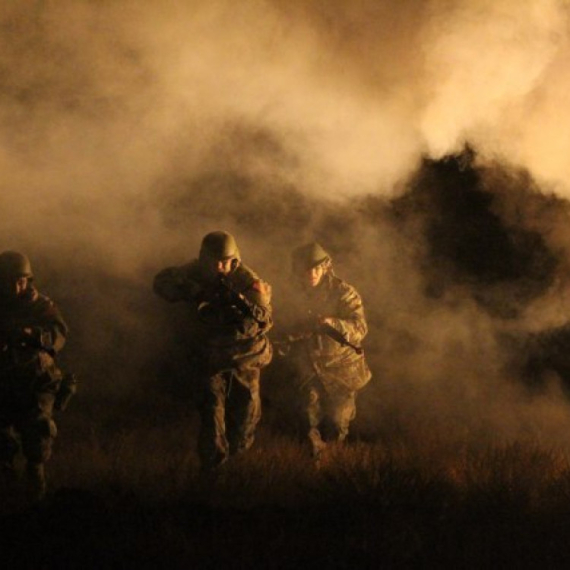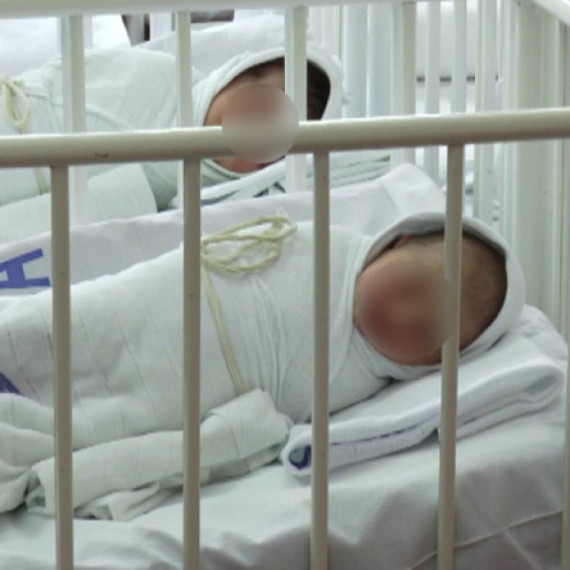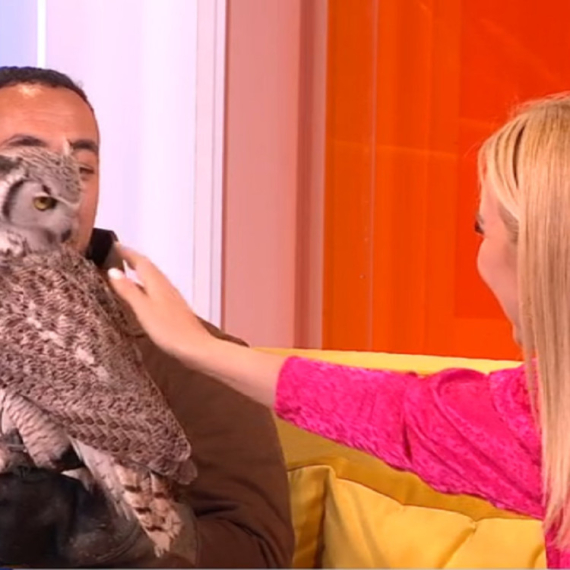Outgoing deputy PM: No guarantee for candidature
Deputy PM Božidar Đelić, <a href="http://www.b92.net/eng/news/politics-article.php?yyyy=2011&mm=12&dd=09&nav_id=77718" class="text-link" target= "_blank">who on Friday resigned</a>, said late on Sunday that Serbia has no guarantees that it will be made a candidate for EU membership in March.
Monday, 12.12.2011.
09:30

Deputy PM Bozidar Djelic, who on Friday resigned, said late on Sunday that Serbia has no guarantees that it will be made a candidate for EU membership in March. "If your question is whether the candidate status is certain - the answer is 'no'," he told B92 TV. Outgoing deputy PM: No guarantee for candidature Djelic, who's government portfolio covered Serbia's EU integrations and who decided to step down as Brussels postponed its decision on making the country a membership candidate, added that should insistence continue for Serbia to "move away" from UNSC Resolution 1244 - "it will be hard to reach an agreement on regional representation of Kosovo". "If there is no change in positions, it will not be simple to get the candidate status, but that does not mean we should not go to discussions," he stated, and noted that "this was the first time that I'm aware of that the opinion of the European Commission (on making a country a candidate) was not followed". "We traveled to Brussels on Friday having fulfilled the conditions for the candidate status, and moving even into fulfilling the conditions for the start of (EU membership) negotiations," he continued, and explained that "it turns out the conditions were not those formulated by the European Commission". According to Djelic, "Serbia fought for the EU Council formulation to be that it would given the candidate status, which would be confirmed, i.e., come into force, in March". Two countries were "most reserved" toward Serbia's bid, he said, and added those were Germany and Austria, who "publicly said their position was very much influenced by the wounding of their soldiers in Kosovo". Djelic conceded that the incident at the barricades in northern Kosovo was merely a cynical excuse for the two countries to deny Serbia a chance to become a candidate for EU membership, but added that it was "a fact that the attacks on German soldiers had a strong echo in the media and political public of that country". "That is not just, because the entire construction starts with the resolution adopted in the UN (in 2010) that said the dialogue with Pristina will not be a condition for EU integrations," said Djelic, but noted that the so-called Quint - Germany, the U.S., Britain, France and Italy - last spring "changed their policy" - starting to "bind the issue of Serbia's European road ever more strongly to Kosovo". "I said it then that it would not be advisable, useful and rational to have the future of an entire nation depend on one deal, which we knew would be difficult. But, during the spring, a number of countries changed their position and tied this deal to Serbia's European road," said he. Djelic also believes Serbia "has no other possibility but to continue dialogue with all factors in the EU, because the only alternative is to freeze the Kosovo conflict, and self-isolation": "There is a defeatist approach that wishes to self-isolate Serbia and those who think that problems will disappear in this way - that's politics for children. The politics for adults is to try to reach the best solution even under unfavorable circumstances, and that will not be reached if you halt dialogue with those who hold the key to such a solution," concluded Djelic. Meanwhile, his ruling Democratic Party (DS) praised his decision to resign as "a highly moral act", and announced that "part of his duties will now be transferred to the Government EU Integration Office". Djelic is seen in Belgrade on Sunday (Tanjug)
Outgoing deputy PM: No guarantee for candidature
Đelić, who's government portfolio covered Serbia's EU integrations and who decided to step down as Brussels postponed its decision on making the country a membership candidate, added that should insistence continue for Serbia to "move away" from UNSC Resolution 1244 - "it will be hard to reach an agreement on regional representation of Kosovo"."If there is no change in positions, it will not be simple to get the candidate status, but that does not mean we should not go to discussions," he stated, and noted that "this was the first time that I'm aware of that the opinion of the European Commission (on making a country a candidate) was not followed".
"We traveled to Brussels on Friday having fulfilled the conditions for the candidate status, and moving even into fulfilling the conditions for the start of (EU membership) negotiations," he continued, and explained that "it turns out the conditions were not those formulated by the European Commission".
According to Đelić, "Serbia fought for the EU Council formulation to be that it would given the candidate status, which would be confirmed, i.e., come into force, in March".
Two countries were "most reserved" toward Serbia's bid, he said, and added those were Germany and Austria, who "publicly said their position was very much influenced by the wounding of their soldiers in Kosovo".
Đelić conceded that the incident at the barricades in northern Kosovo was merely a cynical excuse for the two countries to deny Serbia a chance to become a candidate for EU membership, but added that it was "a fact that the attacks on German soldiers had a strong echo in the media and political public of that country".
"That is not just, because the entire construction starts with the resolution adopted in the UN (in 2010) that said the dialogue with Priština will not be a condition for EU integrations," said Đelić, but noted that the so-called Quint - Germany, the U.S., Britain, France and Italy - last spring "changed their policy" - starting to "bind the issue of Serbia's European road ever more strongly to Kosovo".
"I said it then that it would not be advisable, useful and rational to have the future of an entire nation depend on one deal, which we knew would be difficult. But, during the spring, a number of countries changed their position and tied this deal to Serbia's European road," said he.
Đelić also believes Serbia "has no other possibility but to continue dialogue with all factors in the EU, because the only alternative is to freeze the Kosovo conflict, and self-isolation":
"There is a defeatist approach that wishes to self-isolate Serbia and those who think that problems will disappear in this way - that's politics for children. The politics for adults is to try to reach the best solution even under unfavorable circumstances, and that will not be reached if you halt dialogue with those who hold the key to such a solution," concluded Đelić.
Meanwhile, his ruling Democratic Party (DS) praised his decision to resign as "a highly moral act", and announced that "part of his duties will now be transferred to the Government EU Integration Office".

































Komentari 14
Pogledaj komentare